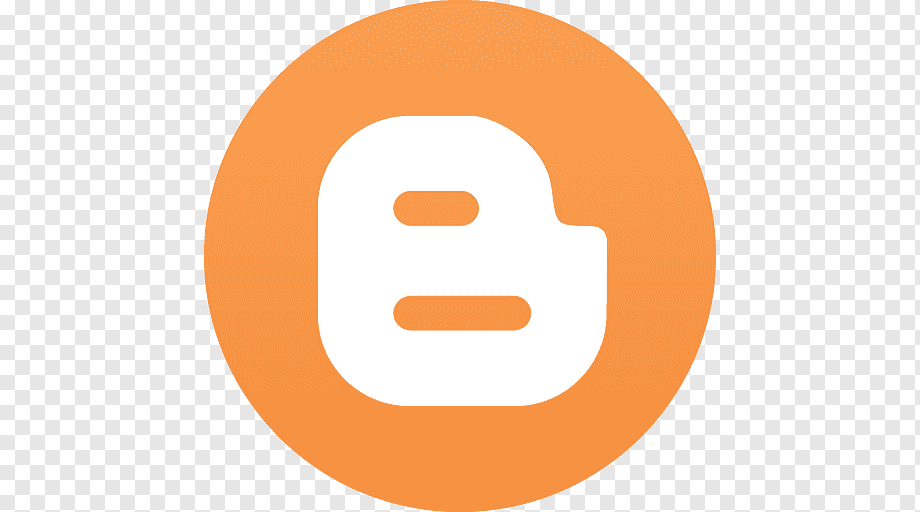Managing your blog's settings
When you use the internet version of Blogger, you can manage your blog's settings. The following content provides information about the different types of blog settings and how you can customize your blog well.
Basics
Title
The title of your blog.
Explanation
Description of your blog.
Blog Language
The language of your blog.
Adult content
This setting is to indicate that your blog contains mature content, including images or videos that contain nudity or sexual activity. If this setting is selected, people who will view your blog will be greeted with a warning message and asked to confirm that they want to continue your blog.
Google Analytics Property ID
Include Google Analytics on your blog to see how visitors are interacting with your site. Add your Google Analytics Web Property ID (for example, <code;ua-123456-1< code="">) to step in following your blog. This setting is specific to dynamic skins and level themes. If your blog uses a classic theme, you'll need to manually add it to your regular theme.
site icon
Upload a custom site icon.
security
listed on blogger
Allow users to connect to your blog from Blogger.com or other blogs.
May appear in search engines
Let search engines find your blog.
Publishing
blog address
Choose a blog address or URL.
Important: The selected subdomain must be available.
custom domain name
Redirect your own registered URL to your blog. Blogs cannot be hosted on public domains (for example, yourdomain.com). It must contain a top-level domain (www.yourdomain.com) or a subdomain (blog.yourdomain.com). First, your domain must be properly registered.
Redirect domain name
This option allows a redirect from the "public" domain to the private domain (for example, you can redirect from "example.com" to "www.example.com").
Backup subdomain
You can use the CNAME to associate your custom domain name with your blog.
HTTPS availability
This setting is only available for private domains, as Blogspot addresses for custom domains are always HTTPS. If HTTPS Redirect is enabled:
Visitors to your blog are always redirected to https://.blogspot.com.
If HTTPS Redirect is disabled:
Visitors to http://.blogspot.com are served the page over HTTP, an unencrypted nexus.
Visitors to http://.blogspot.com are served the page over HTTPS, an encrypted network.
HTTPS redirect
When you enable HTTPS redirection, visitors always reach the secure version at https://.blogspot.com.
Permissions
Blog administrators and authors
Displays a list of blog administrators and authors. You can also change or cancel your membership here.
pending author invitations
Displays users who have not yet accepted your invitation to become an author.
Invite more authors
To add a blogger, enter the email address of the individual you wish to add. The person in question will be listed as an author after accepting your invitation. You can add up to 100 members (authors, administrators or readers) to your blog.
Important: Google account is required to manage blogs and share impressions.
Reader access
By default, your blog is open to everyone and can be read by all of us online. To limit who can view your blog, select Public, Private to Authors, or Private readers in the "Reader access" section.
Private readers
Displays the list of blog readers.
Pending special reader invitations
Displays users who have not yet accepted your invitation to become a reader.
Invite more readers
Enter the email address of the individual you want to read your blog.
Publications
The most impressions delivered on the home page
Select the maximum number of impressions you want to show on the homepage.
Message template (optional)
Message templates format the impression editor with text or code to display each time you create a new impression.
picture lightbox
Selecting this setting will open your images in an overlay at the top of your blog. If your post contains multiple photos, they are displayed as thumbnails at the bottom of the screen.
Comments
Comment location
Built-in: Allows users to reply on the air.
Full page and Pop-up window: Redirects users to a new page so they can comment.
Important: Existing comments are not deleted when you select "Hide". You can have the comments displayed at any time by selecting another option.
Who can comment?
You can manage who can comment on your blog posts on Blogger. "Who Can Comment?" In the section choose:
Everyone (including anonymous people)
Users with a Google Account
Members of this blog only
Comment moderation
Review comments before they are posted. To review comments, go to the Comments view.
More information on auditing.
For posts older than:
If you select "Sometimes" in the comment moderation section, only comments created during this time period will go to the moderation section.
Send audit requests to:
You will receive an e-mail alert when a new comment is made on your blog.
Reader comment captcha test
If someone wants to comment on your blog, they must complete a word verification step. Learn how to prevent spam comments. Bloggers won't see the word verification step for comments.
Important: Even if this setting is disabled, some users who post comments may be prompted to enter a code before their comment is published.
Comment form message
This message is displayed below the comment box.
Publish using email
Email is also known as Mail2Blogger. Use this address to post text and photos directly to your blog.
Comment notification email
An e-mail is sent to these addresses when comments are made on your blog.
Pending comment notification emails
Displays users who have not yet accepted your invitation to receive comment notification emails.
Invite more users for comment notification emails
You can enter up to 10 email addresses, separated by commas.
Destination to email posts to:
Emails are sent to these addresses each time you post a new impression.
Pending impression notification emails
Displays users who have not yet accepted your invitation to receive broadcast notification emails.
Grab more users for broadcast notifications
You can enter up to 10 email addresses, separated by commas.
Forming
Time Zone
Set your time zone.
Date header format
This is how the date appears on your records.
timestamp format
This is how the broadcast's timestamp appears.
Comment timestamp format
This is how the comment's timestamp appears.
Meta Tags
Enable search descriptions
Set the blog's search description. Help users choose your blog in search results by writing a summary summarizing what your blog is about.
Errors and redirects
Custom 404 page
Set the blog's 404 page not found message. Type a message that will be displayed on the 404 page instead of the generic message.
Custom redirects
Set custom redirects for the blog Add custom redirects for URLs that lead to your blog's pages.
Source
Add the deleted URL. Select Persistent if the original post has been deleted.
Aim
Add the URL you want to redirect to.
Browsers and indexing
Enable custom ads.txt content
Set up your blog's custom robots.txt content. This text is used instead of what is in the default robots.txt for search engines.
Enable custom robot title tags
Set up the blog's custom robot title tags. These beacons are used to set the robot title tags available to search engines. More information on robot header tags.
Google Search Console
Search console link.
Earning money
Enable custom ads.txt content
Set the blog's custom ads.txt content. The ads.txt file allows you to specifically specify and authorize resellers for your digital ad inventory. More on custom ads
manage the blog
Import content
You can import .xml files containing posts and comments to your blog.
Backup content
When you back up your blog, you will get an .xml file with impressions and comments.
videos on your blog
You can download or delete videos from your blog.
remove my blog
When you delete a blog, you have a short time to restore it. When you permanently delete a blog: All the information, posts and pages on your blog are deleted and you are unlikely to be able to restore such things.
Important: Deleted blogs can be reinstalled within 90 days without being completely deleted. You can create another blog at this address using the Google Account where you are currently logged in. You can export your blog before deleting it.
Site feed
Allow blog feed
All: Distributes all the content of your broadcast.
Up To Jump Interval: Shows all display content before your jump interval. More information on Jump Ranges.
Short: Distributes approximately the first 400 characters.
None: If you select "None", your blog's XML feed will be disabled.
Custom: Allows you to set advanced options such as blog posts, comments feed, or comments per impression feed.
Blog post feed
Choose how much of your broadcast content you want to share.
Blog comment feed
Choose how much of what's in your comments you want to share.
Comment feeds per post
Choose how much of your comment content you want to share per post.
Broadcast feed redirect URL
If you wrote your feed feed with FeedBurner or used a different service to process your feed, enter the full feed URL in the tray here. Blogger sends all impression feed traffic to this address prevents. If you do not want a redirect, leave this field blank.
Post feed footer
This item appears after every post in your impressions feed. If you are using advertising or other third-party feed plugins, you can enter the relevant code here. You must also set "Allow blog feed" to All.
Header link and additional anchor
This adds title link and additional anchor options to the notation editor.
Header links allow you to set a custom URL for your display title.
Additional links are used in your feeds to set up podcasts, MP3s and other content that can be played in feeds such as RSS and Atom.
General
Use blogger sketch
Blogger sketch is beta version Blogger. Enable this setting to check new features before they are released to all Blogger users.
user profile
Click the "User profile" link to manage your user profile.

